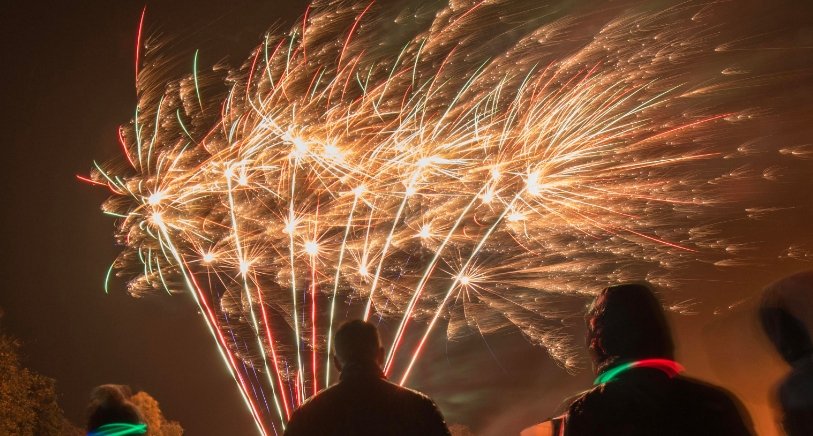Glasgow City Council is exploring the possibility of using new powers to ban the use of fireworks in private gardens around November 5, also known as Bonfire Night or Guy Fawkes Night. The move comes as a response to the increasing incidents of anti-social behaviour and violence involving fireworks in some parts of the city.
Why is Glasgow considering a ban on fireworks?
According to the council, fireworks can cause distress and harm to people, animals and the environment, especially when they are used irresponsibly or illegally. The council also cited the safety risks and the pressure on emergency services as reasons to restrict the use of fireworks.
The council has the authority to impose a ban on fireworks in private gardens under the Fireworks (Scotland) Regulations 2024, which came into force in January this year. The regulations allow local authorities to designate areas where fireworks cannot be used without a licence, except on certain dates such as Bonfire Night, New Year’s Eve, Chinese New Year and Diwali.
However, the council is considering going further and banning fireworks in private gardens even on those dates, as part of its Fireworks Action Plan. The plan aims to reduce the negative impacts of fireworks and promote safer and more inclusive alternatives.
How will the council decide on the ban?
The council is currently conducting a public consultation on the proposed ban, which will run until April 30, 2024. The consultation seeks the views of residents, businesses, community groups and other stakeholders on the issue of fireworks and the potential benefits and drawbacks of a ban.

The council will also consider the evidence and best practices from other cities and countries that have implemented similar bans or restrictions on fireworks, such as Edinburgh, Manchester, Leeds and Ireland.
The council will then analyse the feedback and the data and make a decision on whether to proceed with the ban or not. The decision will be announced in June 2024, and if approved, the ban will come into effect from November 2024 onwards.
What are the reactions to the proposed ban?
The proposed ban has received mixed reactions from different groups and individuals. Some have welcomed the idea as a way to protect the public and the environment from the dangers and nuisances of fireworks, while others have opposed it as a violation of personal freedom and a threat to the cultural tradition of Bonfire Night.
Some of the supporters of the ban include:
- The Scottish Fire and Rescue Service, which said that fireworks can cause serious injuries and fires and that a ban would reduce the demand on its resources.
- The Scottish Society for the Prevention of Cruelty to Animals, which said that fireworks can cause stress and anxiety to animals and that a ban would improve their welfare.
- The Glasgow Disability Alliance, which said that fireworks can affect the health and well-being of people with disabilities and that a ban would make the city more accessible and inclusive.
Some of the opponents of the ban include:
- The British Fireworks Association, which said that fireworks are a legitimate and enjoyable form of entertainment and that a ban would harm the industry and the economy.
- The Glasgow Bonfire Night Association, which said that fireworks are a part of the city’s history and culture and that a ban would erode the community spirit and the celebration of freedom and democracy.
- The Glasgow Fireworks Users Group, which said that fireworks are a personal choice and a right and that a ban would infringe on civil liberties and create a black market for illegal fireworks.
What are the alternatives to fireworks?
The council has suggested that there are other ways to celebrate Bonfire Night and other occasions without using fireworks, such as:
- Attending organised and licensed fireworks displays, which are safer, more spectacular and more environmentally friendly than private ones.
- Participating in community events, such as lantern parades, bonfire parties, music festivals and cultural performances, which are more inclusive and diverse than fireworks.
- Enjoying virtual or digital fireworks, such as online videos, apps, games and simulations, which are more accessible and convenient than fireworks.
The council has also pledged to support and fund these alternatives and to work with partners and communities to promote them.


















